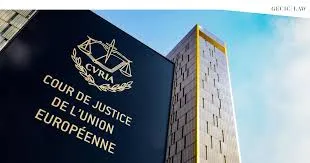The General Court of the European Union (“the General Court”) published a press release numbered 65/20 with regards to the judgment in case CK Telecoms UK Investments v Commission on May 28, 2020. The remarks made in the judgment set a light on the understanding of competition in one of the most competitive sectors, the telecommunication sector. In consideration of the pleas and arguments on the respected case, the General Court concluded that solely reducing competitive pressure on the competitors in the market, in principle, is not sufficient in itself to constitute a significant impediment to effective competition.
The Dispute
CK Hutchison Holdings Ltd was to acquire and have the sole control over a mobile telecommunication service provider “Telefónica Europe Plc” (“O2”) through its indirect subsidiary Hutchison 3G UK Investments Ltd(“Three”) which also operates in United Kingdom’s mobile telecommunication services market (“retail market”). Such concentration was rendered with respect to two sided analysis on the retail market and network sharing agreements.
In relation to retail market analysis of the Commission of the European Union (“the Commission”), at the time when the dispute was risen, there were four mobile network operators in the United Kingdom(“UK”) mobile telecommunications market. Therefore, the acquisition was contested by the Commission on the grounds that conduct of such concentration would have entitled “Three” with almost 30% or 40% of the market shares which would admittedly position “Three” as the major player and would have removed an important competitor from the market.
In addition to the alert on market shares, with regards to network sharing agreements, the Commission underpinned that in UK’s retail market, there are also several mobile virtual network operators which do not have their own host network system but rather, are in need to conclude agreements with one or more mobile network operator so as to have access to its network at wholesale prices. Since “Three” and “02” are the parties to two separate network sharing agreements respectively to “Mobile Broadband Network Limited” and “Beacon”, the Commission disputed the proposed merger based on unfavorable wholesale access conditions for the virtual operators due to the decrease in the number of host mobile networks. Thus, the Commission concluded that the concentration would have weakened competitors thereby hindering the future development of the mobile network infrastructure in the country and also such transaction would have bred potential increase in mobile telecom prices, restriction of choice to the consumers.
“Three” contested the Decision of the Commission
In response to the Commission, “Three” filed an action before the General Court in order for annulment of the decision of the Commission. In its allegation, “Three” claimed that the decision of the Commission was not verifiable and were unlikely to benefit the customers. By taking account the allegations of “Three” and decision of the Commission, the General Court reasoned its decision on the following grounds.
Considerations of the General Court
In response to the statements of the Commission regarding the negative impact of such acquisition on the competitive retail market, the General Court held that “the mere effect of reducing competitive pressure on the remaining competitors is not, in principle, sufficient in itself to demonstrate a significant impediment to effective competition in the context of a theory of harm based on non-coordinated effects”. It further added that even if “Three” is considered as an “important competitive force” in the relevant market or the merging entities (both “02” and “Three”) are close competitors; neither “02” nor “Three” does necessarily stand out from their competitors in terms of their impulse on competition.
Even though, such assessments were found enough for merger blocking, any undertaking (or close competitors) in an oligopolistic environment would be able to exert competitive pressure in their relevant markets. Hence, such assertions cannot always be interpreted as to block mergers or acquisitions. The Court also indicated that the Commission’s quantitative analysis of the effects of the concentration on prices did not solely constitute a sufficiently high degree of probability that prices would urge up significantly. Therefore, the potential price fixing argument was dismissed by the Court.
The Commission’s assessment on network-sharing agreements was also found unjustifiable. The General Court set forth that a possible misalignment between network-sharing partners or even disruption of the agreements would not automatically cause significant impediment to effective competition in the context of a theory of harm on unilateral effects. The General Court was not satisfied with the insufficient analysis by the Commission with regards to whether the services the network quality would degrade from concentration in case “O2” is acquired by “Three”.
The Court underlined that even though one of the two agreements had favored and was encouraged to alleviate the costs related to the other network, this would not have a disproportionate force on the position of the other partner in the network sharing agreements or create a significant hindrance to the effective competition. Therefore, the Court rejected the assessment of the Commission that the acquisition would impinge negatively on the competition. In contrast with the standpoint of the Commission, the Court stated that “Three had more of an influence on competition than its market share would suggest is not sufficient to establish the existence of a significant impediment to effective competition”.
In light of the stated fact, the General Court reached the conclusion that the closeness of the competition shall not suffice to create a significant impediment to effective competition; “if that were not the case, any concentration resulting in a reduction from four to three operators would as a matter of principle be prohibited”.
Ezgi Aysima Kır & Sinan Erkan


